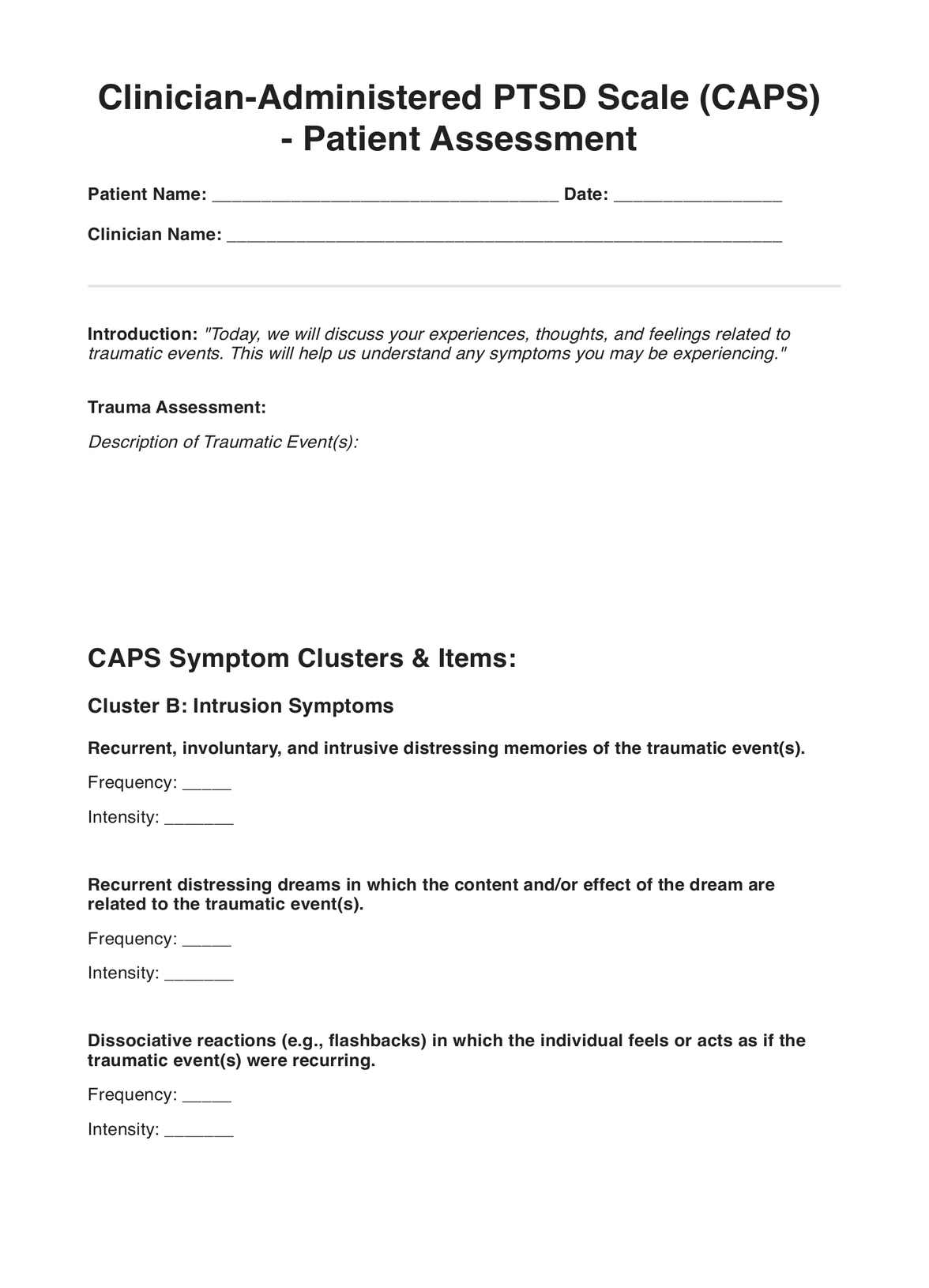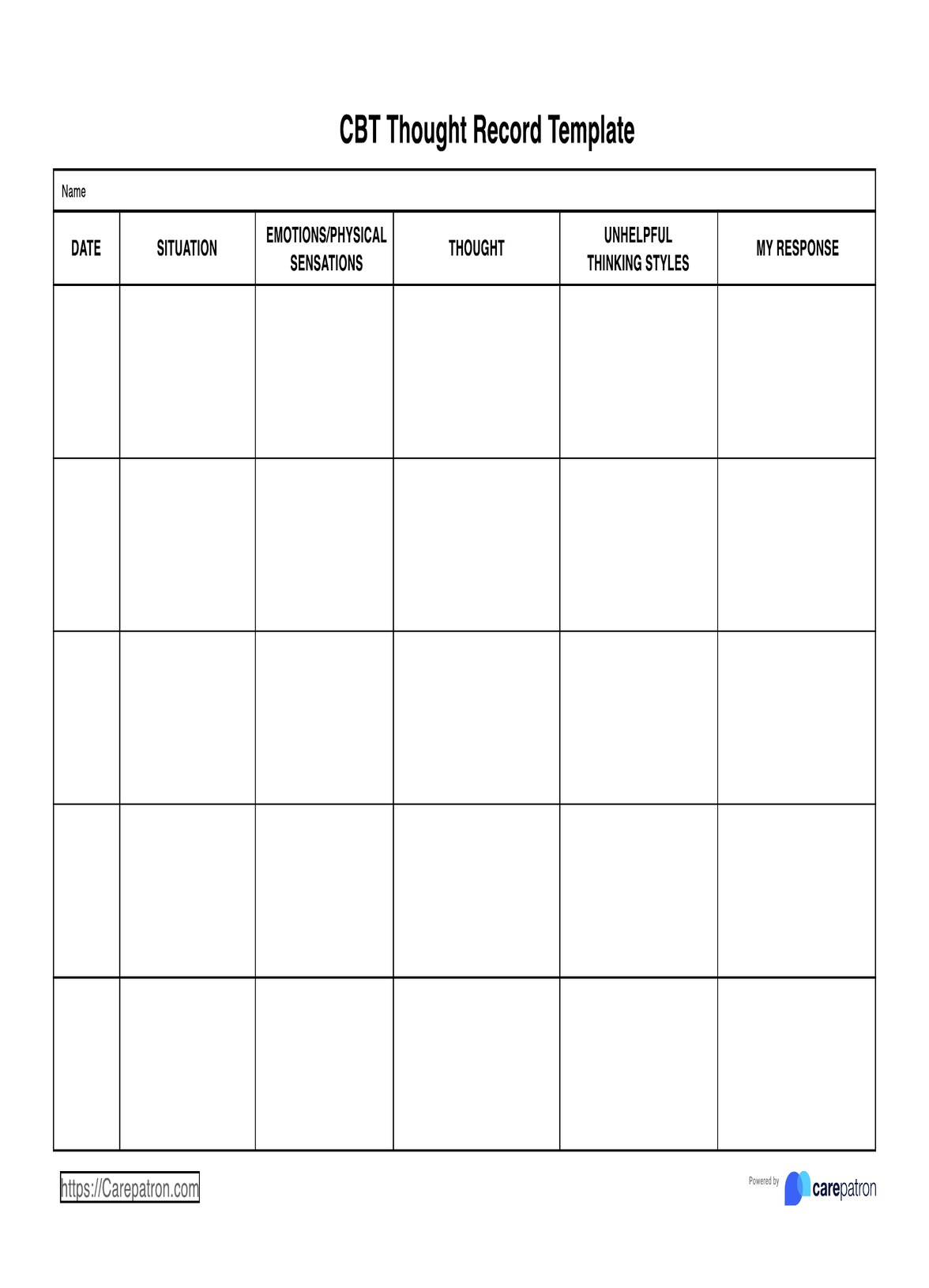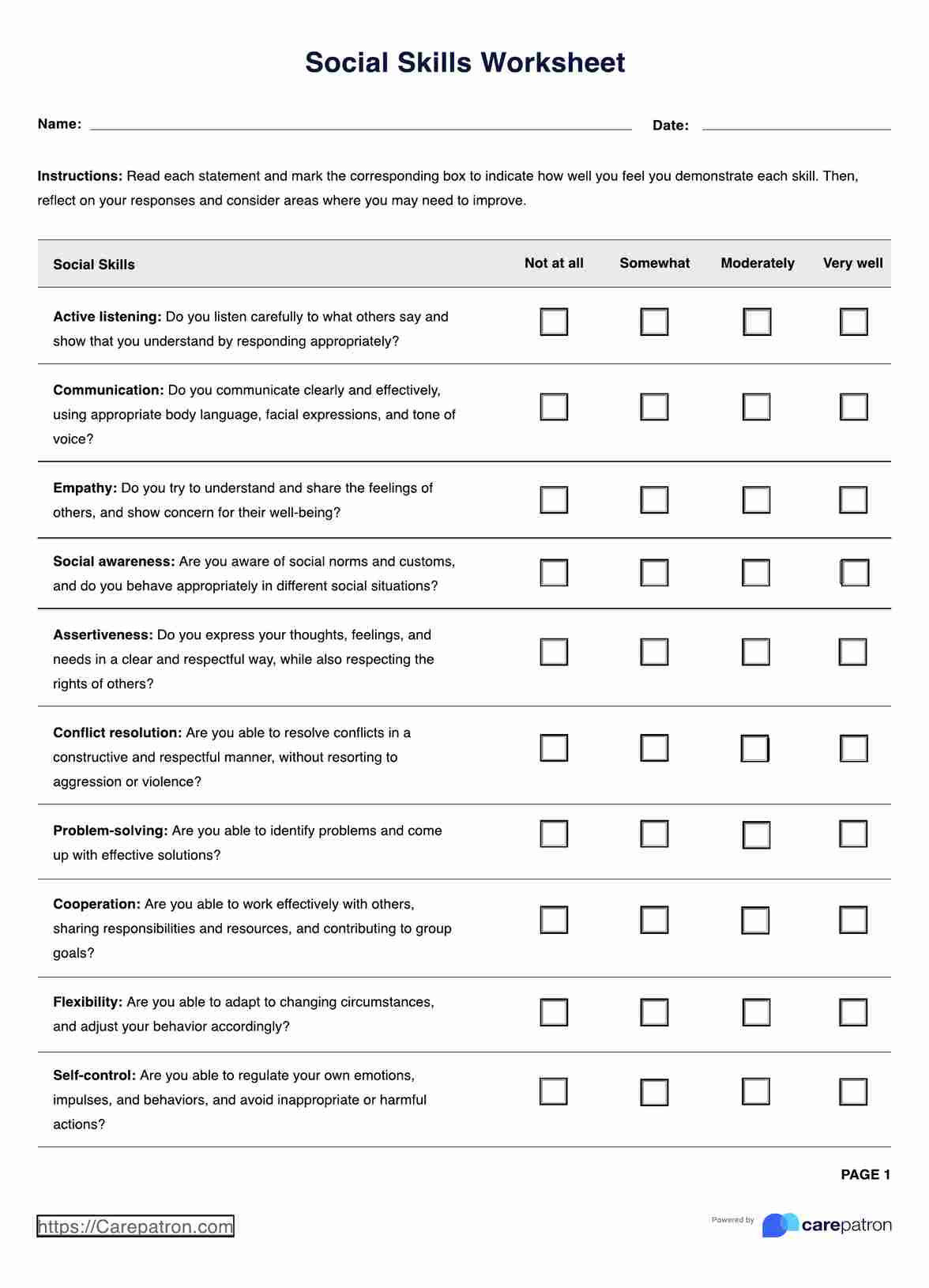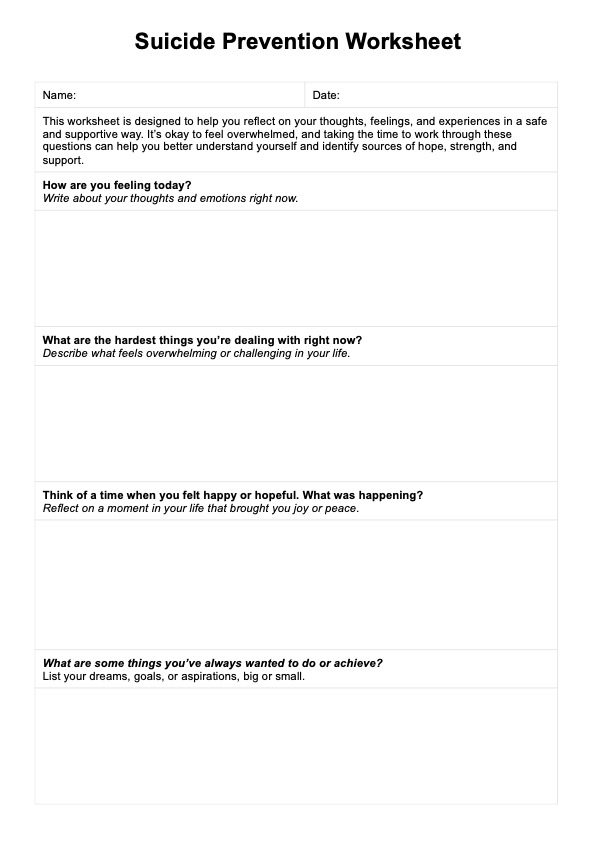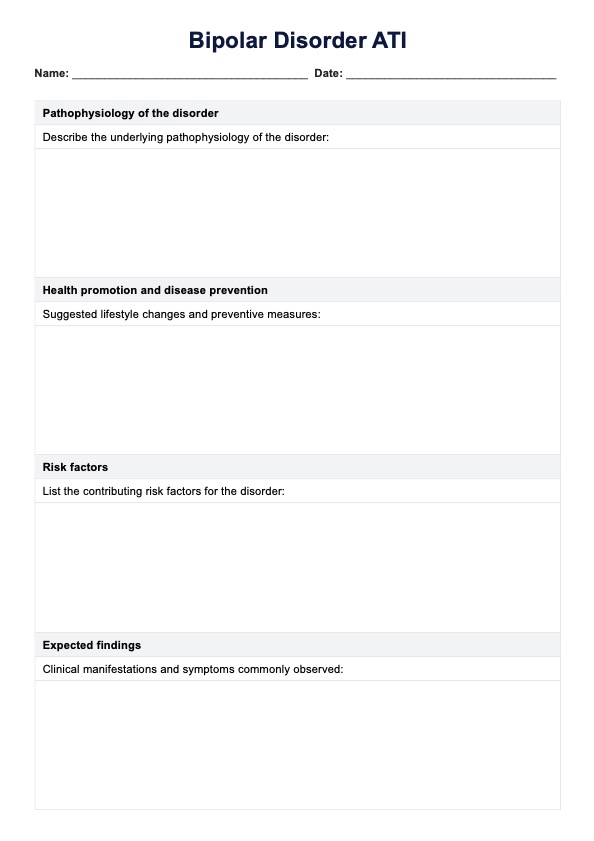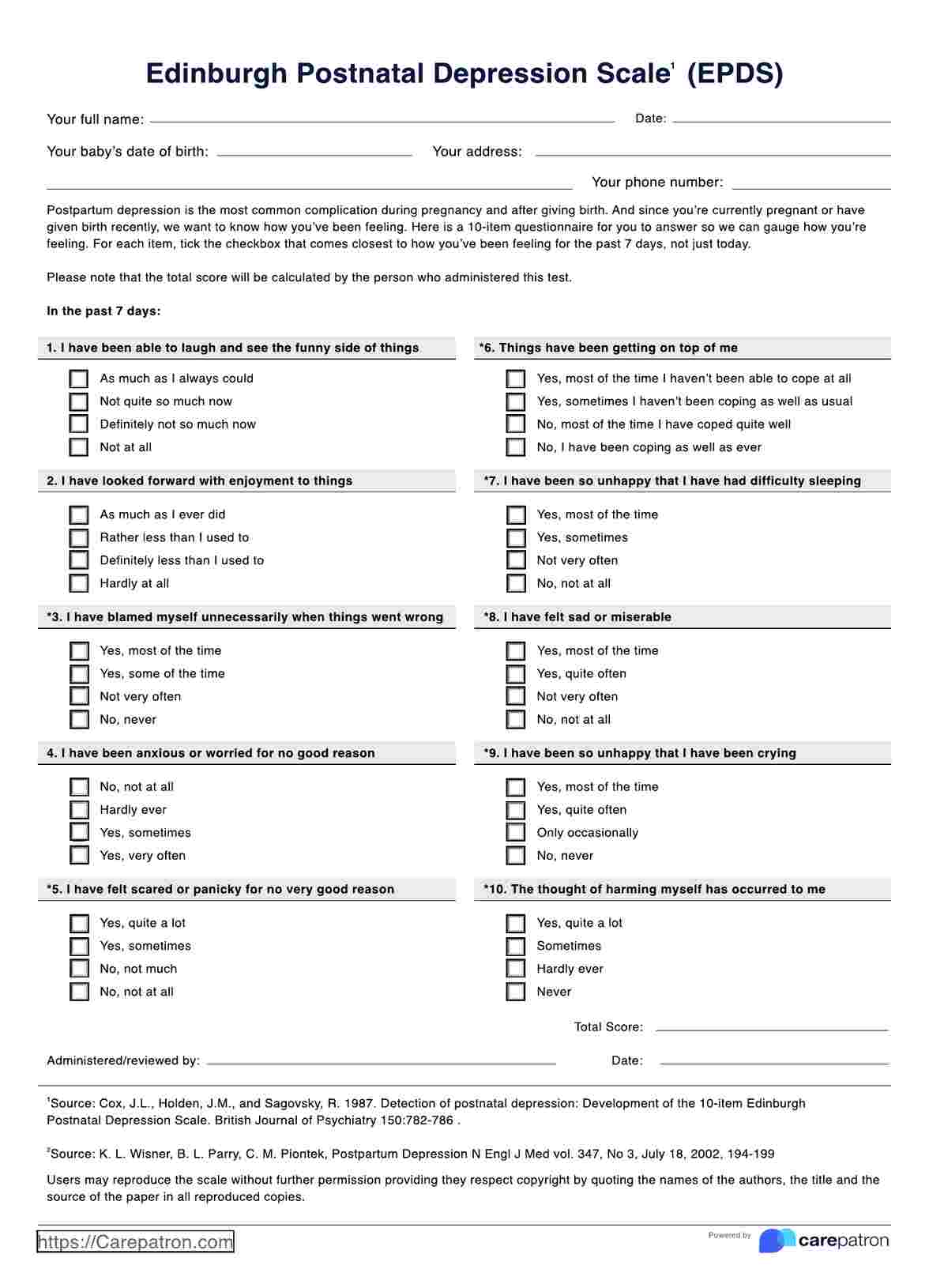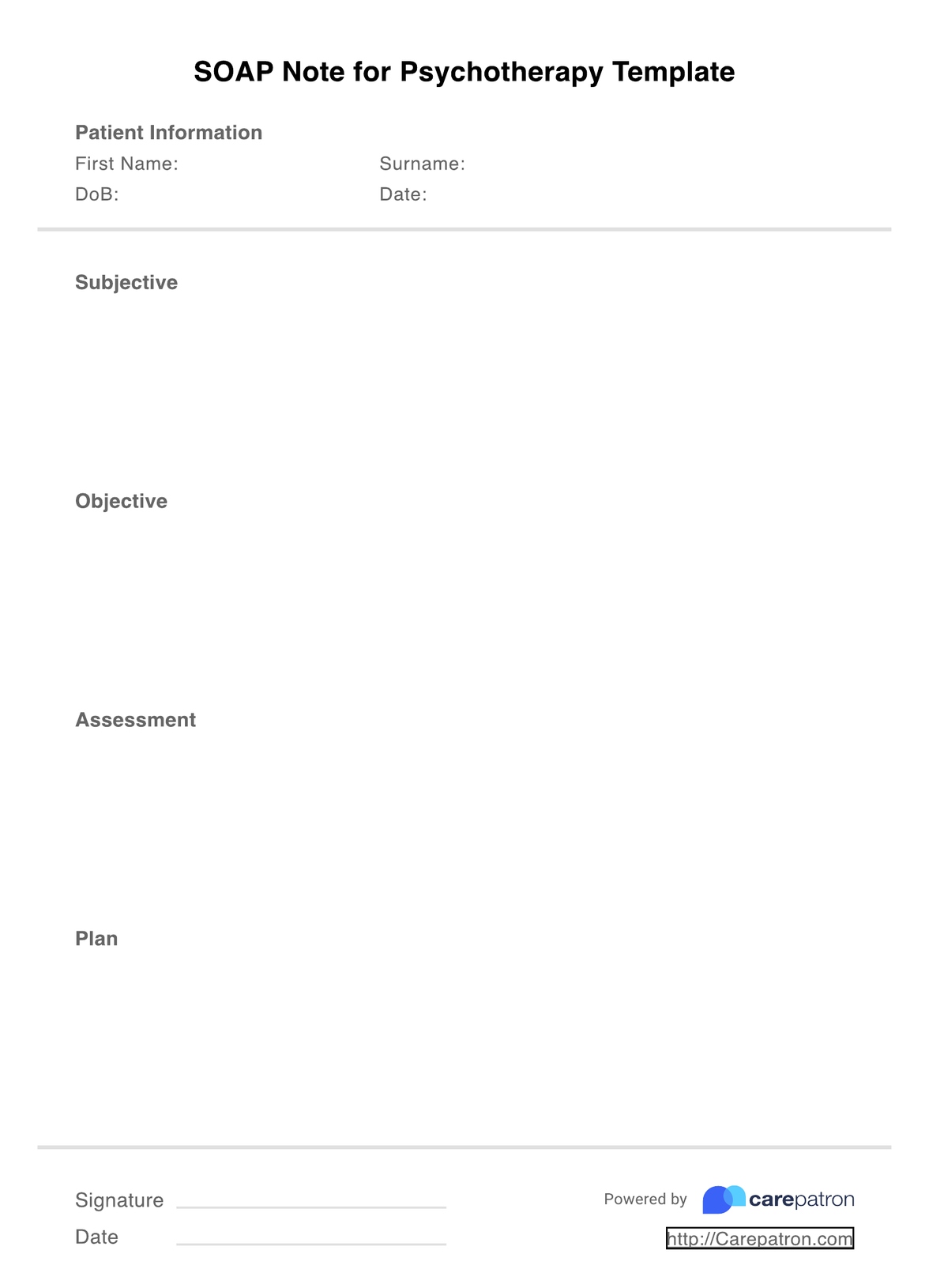Mind Over Mood Worksheets
Carve your path to better mental health with Carepatron's Mind Over Mood Worksheets. Simple, secure, and globally trusted for effective mood management.


What is a Mind Over Mood Worksheet?
A Mind Over Mood Worksheet is a therapeutic tool derived from the internationally acclaimed self-help book, "Mind Over Mood" written by Dr. Dennis Greenberger and Dr. Christine Padesky. This evidence-based resource is designed to assist individuals in understanding and altering their thoughts and feelings that influence their behaviors.
These worksheets incorporate Cognitive Behavioral Therapy (CBT) techniques, a psychotherapeutic treatment that helps individuals understand how their thoughts and feelings influence behaviors. The aim is to facilitate identifying and understanding thought patterns and emotional responses, providing practical exercises that enable users to apply CBT principles in real-life situations.
The worksheets range from mood assessment scales, which allow users to rate the intensity of their emotions, to thought records that help identify and challenge negative automatic thoughts. They also include action plans that guide users in developing strategies to change unhelpful behaviors or cope with difficult situations.
The can be used in conjunction with therapy or as part of a self-help approach — they are not just practical tools but also stepping stones towards better mental health, assisting individuals in navigating their thoughts and feelings, ultimately leading to improved well-being.
Mind Over Mood Worksheets Template
Mind Over Mood Worksheets Example
How to use the Mind Over Mood Worksheet:
Our printable Mind Over Mood Worksheets help users understand and manage their thoughts and feelings, thus influencing their behaviors positively. Here's a step-by-step guide on using the Mind Over Mood Worksheet:
- Identify the Situation: Describe the situation that led to your uncomfortable feelings or unproductive behaviors. This could be an event, interaction, or even a memory. The aim is to define the context in which the distressing emotions or behaviors occurred.
- Mood Rating: Next, rate your moods associated with the identified situation on a scale from 0-100. A '0' rating means you don't feel the mood, while '100' indicates an intense feeling. This step helps quantify your emotional response, providing a benchmark for subsequent comparison.
- Identify Automatic Thoughts: Recognize the automatic thoughts that popped into your mind when you were in the situation. These spontaneous thoughts often influence our emotional responses and can be harmful or unhelpful.
- Evidence-Supporting Thoughts: List any objective evidence that supports your automatic thoughts. This exercise encourages you to think critically about the validity of your initial thoughts.
- Evidence Not Supporting Thoughts: Identify objective evidence contradicting your automatic thoughts. This step helps challenge the accuracy of your intuitive views and promotes balanced thinking.
- Develop Alternative Thoughts: Considering supporting and contradicting evidence, develop more balanced or adaptive thoughts. These alternative thoughts should be realistic and helpful, promoting positive emotional and behavioral responses.
- Re-rate Moods: After considering all the evidence and developing alternative thoughts, re-rate your initial moods. This step allows you to assess the impact of balanced thinking on your emotional state.
The Mind Over Mood Worksheet can be a powerful tool in challenging negative thought patterns and promoting healthier psychological responses by following these steps. Practice is essential when mastering this technique, so be patient and persistent. You can download printable Mind Over Mood Worksheets here to kickstart your journey toward improved mental well-being.
When would you use this Form?
The Mind Over Mood Worksheet is designed to assist individuals wrestling with various mood disorders. This worksheet is typically employed when dealing with emotional challenges such as depression, anxiety, stress, panic attacks, anger, guilt, or feelings of shame.
This resource particularly benefits mental health practitioners, including psychologists, therapists, and counselors, who can incorporate these worksheets into their therapeutic sessions. The structured layout of the worksheet allows these professionals to guide their clients through identifying and challenging negative thought patterns, fostering healthier emotional responses. As such, it serves as an effective tool to supplement cognitive-behavioral therapy (CBT) techniques used within the session.
Moreover, the Mind Over Mood Worksheet can also be assigned as homework. This encourages clients to apply learned CBT strategies independently, reinforcing the skills acquired during therapy sessions and promoting consistent practice.
In addition to its application in professional settings, the worksheet can function as a self-help tool for individuals seeking to manage their mood disorders independently. It provides a structured approach to self-reflection, enabling users to understand better their thoughts, feelings, behaviors, and interconnections.
The Mind Over Mood Worksheet is a versatile resource that can be used in diverse contexts, depending on the needs of the individual. It's an effective tool for those seeking to control their mood disorders and enhance their overall psychological well-being.
Benefits
Promotion of Self-Awareness
These worksheets serve as a mirror, reflecting one's thought patterns, emotional responses, and behaviors. This enhanced self-awareness is the first step towards effective mood management.
Mood Regulation
Our free Mind Over Mood Worksheets facilitate in identifying and challenging negative thought patterns. By restructuring these thoughts, users can regulate their moods more effectively.
Cognitive Restructuring Skill Development
The worksheets provide a structured approach to cognitive restructuring, a core Cognitive Behavioral Therapy (CBT) component. This aids in the development of critical mental health management skills.
Accessibility
As free, printable resources, these worksheets are readily accessible and can be used anytime, making them highly convenient for users.
Autonomy in Mental Health Management
The worksheets empower individuals to manage their mental health actively, providing them the tools to navigate their emotional landscape independently.
Therapeutic Tool
For mental health professionals, these worksheets can be valuable tools within therapy sessions, enhancing the therapeutic process.
Cost-Effective
Being free resources, these worksheets provide a cost-effective approach to managing mood disorders, making mental health care more accessible.
Progress Tracking
Regularly using these worksheets allows tracking progress over time, providing tangible evidence of improvement.
Enhanced Resilience
By equipping users with the skills to manage their thoughts and moods, these worksheets ultimately contribute to building resilience, a critical factor for long-term mental health and well-being.
Research & Evidence
Cognitive Behavioral Therapy (CBT) principles anchored the Mind Over Mood worksheets. This therapeutic approach has been widely researched and validated for its effectiveness in managing a broad spectrum of mental health conditions.
The genesis of these worksheets traces back to the seminal self-help book, "Mind Over Mood: Change How You Feel by Changing the Way You Think," authored by Dennis Greenberger, Ph.D., and Christine Padesky, Ph.D. The book offers simple yet powerful steps for overcoming emotional distress and developing a happier, calmer, and more confident disposition.
These worksheets distill complex CBT concepts into practical, step-by-step plans to help individuals overcome depression, anxiety, anger, guilt, and shame. They provide:
- A structured process for identifying core beliefs.
- Challenging negative thought patterns.
- Subsequently, altering these patterns to foster healthier emotional responses.
The efficacy of these worksheets is supported by over four decades of front-line research. Studies have consistently demonstrated the effectiveness of CBT strategies encapsulated in these worksheets in transforming lives. Additionally, they have assisted individuals in setting achievable personal goals and tracking progress, further contributing to their therapeutic value.
The Mind Over Mood worksheets, built on a robust foundation of research and evidence-based practice, serve as an invaluable tool for enhancing mental well-being. They encapsulate the transformative power of CBT in a practical and accessible manner, making them a staple in both professional therapeutic settings and personal self-help contexts.
Commonly asked questions
Mind Over Mood Worksheets are typically used by individuals dealing with mood disorders, therapists, and counselors.
Mind Over Mood Worksheets are used during therapy sessions, as homework assignments, or as self-help tools.
Mind Over Mood Worksheets identify, monitor, and change thought patterns influencing moods and behaviors.
Mind Over Mood Worksheets can help people understand and manage their moods, improving their mental health.

.jpg)
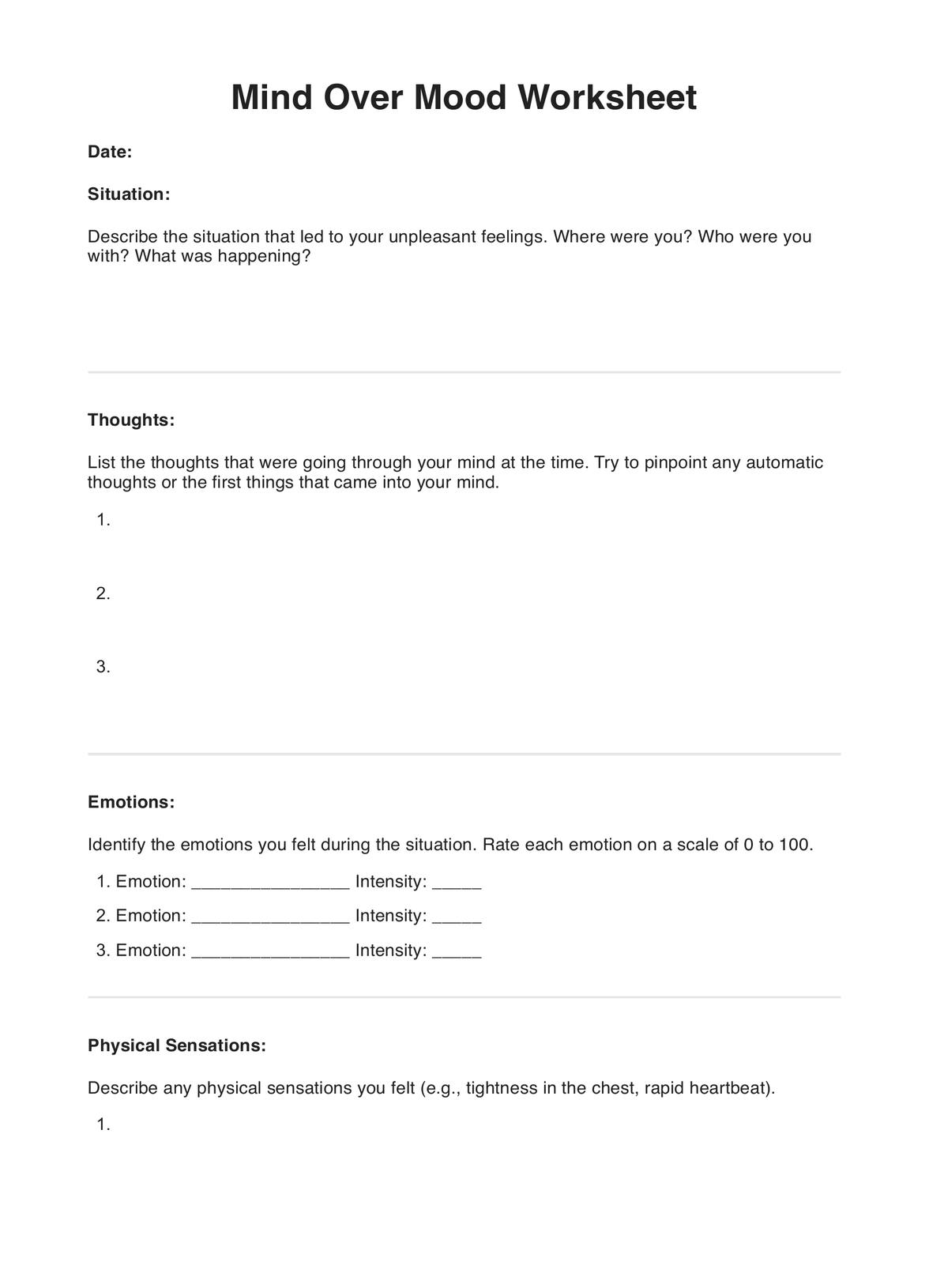
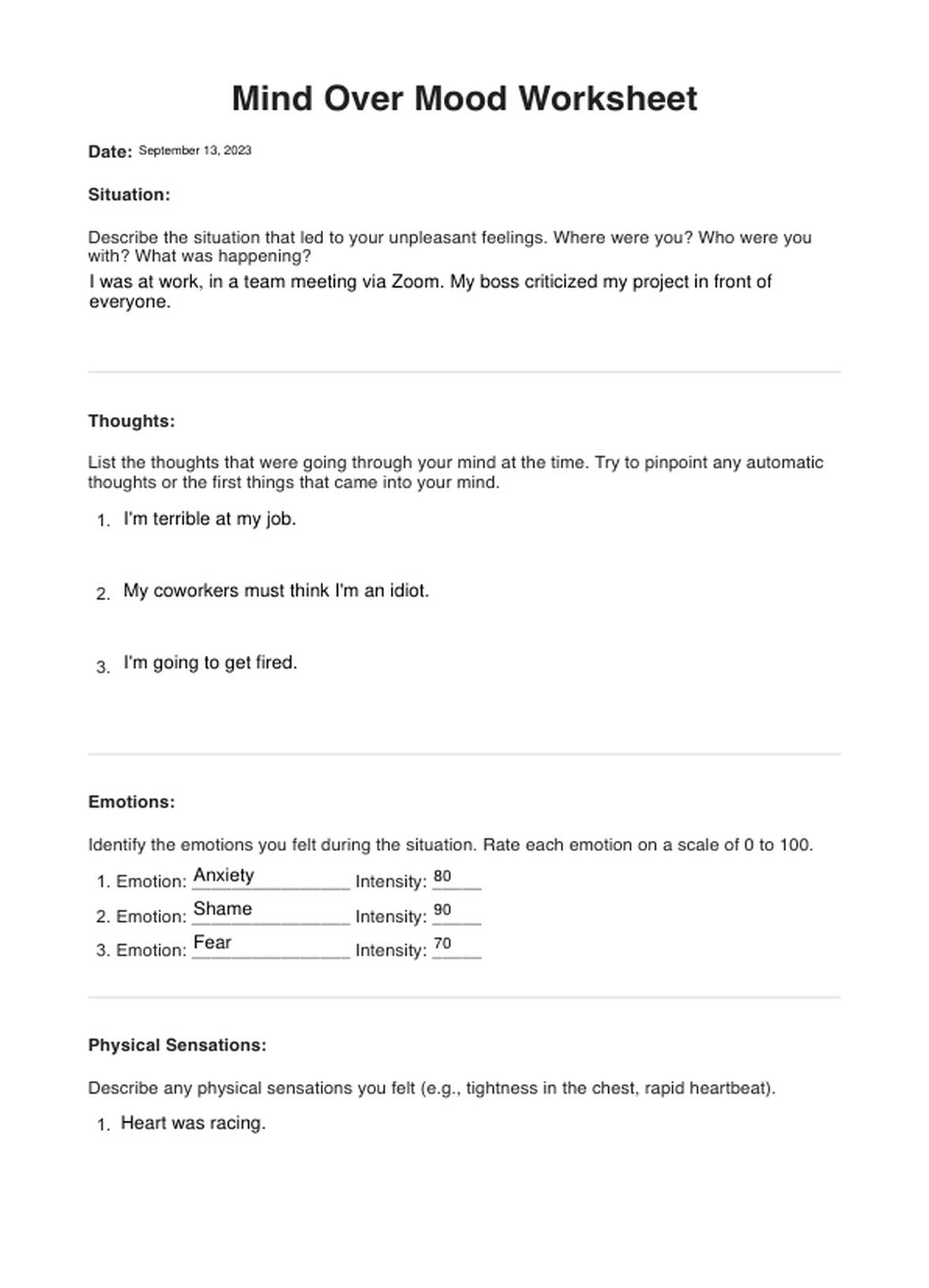

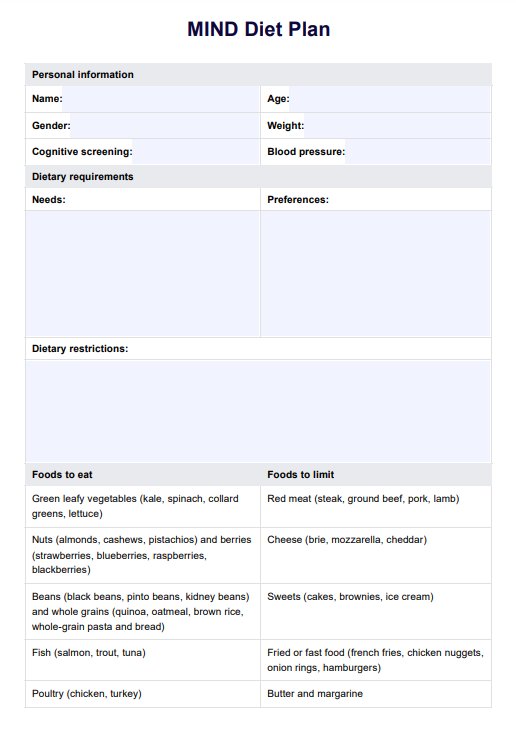














-template.jpg)





















































































